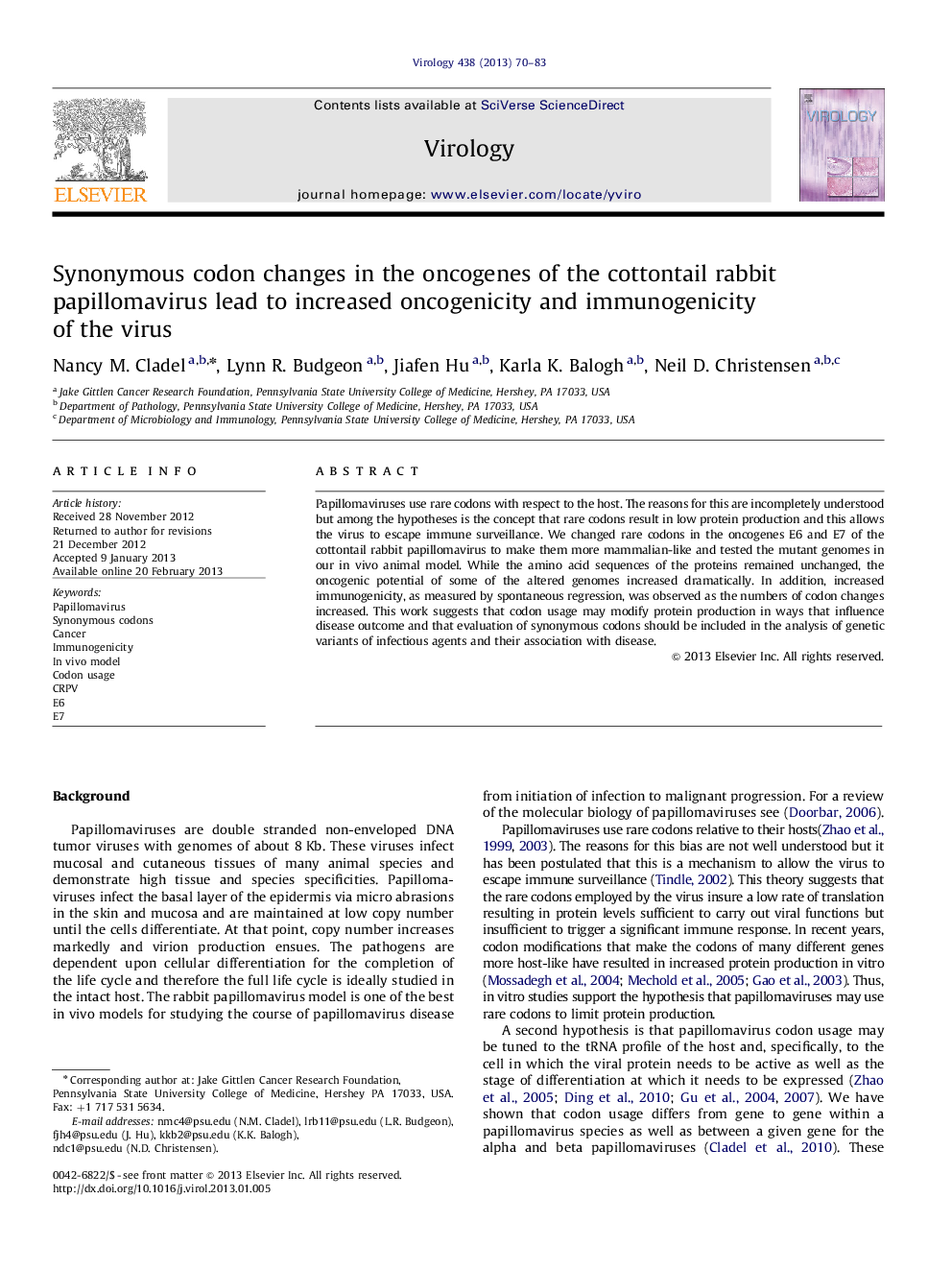| Article ID | Journal | Published Year | Pages | File Type |
|---|---|---|---|---|
| 3424137 | Virology | 2013 | 14 Pages |
Papillomaviruses use rare codons with respect to the host. The reasons for this are incompletely understood but among the hypotheses is the concept that rare codons result in low protein production and this allows the virus to escape immune surveillance. We changed rare codons in the oncogenes E6 and E7 of the cottontail rabbit papillomavirus to make them more mammalian-like and tested the mutant genomes in our in vivo animal model. While the amino acid sequences of the proteins remained unchanged, the oncogenic potential of some of the altered genomes increased dramatically. In addition, increased immunogenicity, as measured by spontaneous regression, was observed as the numbers of codon changes increased. This work suggests that codon usage may modify protein production in ways that influence disease outcome and that evaluation of synonymous codons should be included in the analysis of genetic variants of infectious agents and their association with disease.
► Papillomaviruses use rare codons with respect to the host. ► Codons of the E6 and E7 oncogenes of CRPV were altered to be more mammalian-like. ► Codon-modified genomes yielded more and earlier cancers. ► Immunogenicity also increased. ► The CRPV model can be used to study theories relating to synonymous codon usage.
